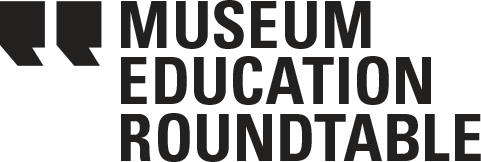CALL FOR ARTICLE IDEAS
Journal of Museum Education
Vol. 50 No. 1 March 2025
The Call for Civic Wellness in Museum Education
Guest Editor: Sam Ramos
The Journal of Museum Education (JME) invites submissions for the March 2025 issue exploring the concept of “Civic Wellness” programs, a term used at the Art Institute of Chicago to describe social justice-oriented workshops and other collaborations with practitioners in healthcare, law, and allied fields, including police oversight organizations, social work, community outreach, and more.
As the US struggles with class and healthcare dysfunction, a broken legal system, and frequent incidents of police violence against economically disadvantaged people and people of color, museums must think proactively and creatively about how we leverage our resources to contribute to the health of our communities with immediacy.
How can museums use their spaces and collections in innovative ways to make tangible contributions to the well-being of vulnerable communities such as those who are ill, disabled, low-income, incarcerated, and racially marginalized?
Specifically, how can we partner with healthcare, legal, policing, and related professions to support a culture of empathic decision-making among those most responsible for frontline care, including in life-and-death situations?
What innovative strategies and practices embody current Civic Wellness pedagogy? What are the appropriate/best metrics for measuring impact in this context?
How “Civic Wellness” looks will depend on the museum and its communities. What are some forms this work can – and should – take?
Articles could address the following questions and topics:
- Examples or case studies of Civic Wellness projects within your organization.
- What is Civic Wellness pedagogy? How is Civic Wellness pedagogy similar to or different from those used with other audiences and in other museum contexts, such as public tours or implicit bias training?
- What examples exist of Civic Wellness programs and partnerships beyond the museum, such as libraries, community-centered non-profits, or others?
- What value do professionals in healthcare, policing, law, or similar professions find in collaborating with museums?
- What does a Civic Wellness experience look like? What are the conversations like? What kinds of objects are used successfully? What is less successful?
- How has Civic Wellness work evolved after the COVID-19 pandemic?
- How has Civic Wellness work responded to injustices, especially concerning policing and the justice system?
- How do museums collaborate with hospitals, police departments, police oversight organizations, and others? What impact do these collaborations have outside of museum walls?
- Examples of successful, sustainable assessments of Civic Wellness program impacts.
- What are some challenges of Civic Wellness programs (ex., Discomfort with police collaborations, resources, staffing, etc.)?
- What is the experience of the student and professional participants in museum Civic Wellness programs?
- What do impacted communities need from these museum programs, and how and where are they contributors to developing offerings and shaping the practice? If community members interact with police or representatives of similar legal systems, how do they respond to partnering with these entities?
- We welcome contributions from museum educators and practitioners in healthcare, law, policing, government, and other allied fields.
Submission Process and Criteria
Essays that include personal reflection, interviews, or that take on a more conversational tone are encouraged, as well as more traditional academic writing.
We will prioritize submissions that:
- Share a clear and well-supported argument with practical takeaways that readers/practitioners can act on that advance and improve upon current practices in Civic Wellness, museum/healthcare, museum/law, etc.
- Are rooted in antiracism and center the pursuit of social justice
- Have a clear connection to museum education.
- Use plain language and jargon-free language.
As a whole issue, we aim to ensure the articles represent various museum types, sizes, and locations and that authors with disabilities and POC authors are prioritized.
To be considered for the issue, potential authors must complete this brief online form with author contact information, a clear thesis and an abstract for your proposed article, and answers to the following questions:
1. How does your article and the work it outlines advance Civic Wellness practice in museums?
2. How is your article and the work it outlines rooted in the pursuit of social justice?
3. How does your article and the work it outlines specifically relate to museum education?
Article ideas must be submitted via the online form by May 31, 2024.
The guest editors will review submissions with the support of the MER Editorial Team and contact potential authors to discuss their proposed article ideas.
Once an article idea is accepted, authors must submit a maximum of 4,500-word paper and a short bio to the guest editors on or before August 5, 2024. All submissions that the guest editors accept will then undergo the standard peer review process, in which authors will not know who reviewed their work, and reviewers will not know who authored the submission. Reviewers recommend publication, revision, or rejection of a submission.
For more information, visit our Journal Submissions page or contact the editors at [email protected] with questions.
As an organization based in the United States, MER is committed to the principles of the Americans with Disabilities Act (ADA). In addition, with international authors and readers, we strive to make the Journal of Museum Education as accessible as possible and will provide accommodations.
The Journal of Museum Education (JME) is the premier peer-reviewed publication exploring and reporting on theory, training, and practice in the museum education field.
Journal articles—written by museum education practitioners and scholars—explore such relevant topics as museum-related learning theory, visitor engagement and community involvement, evaluation, teaching strategies for art, science, and history museums, and the responsibilities of museums as public institutions.

